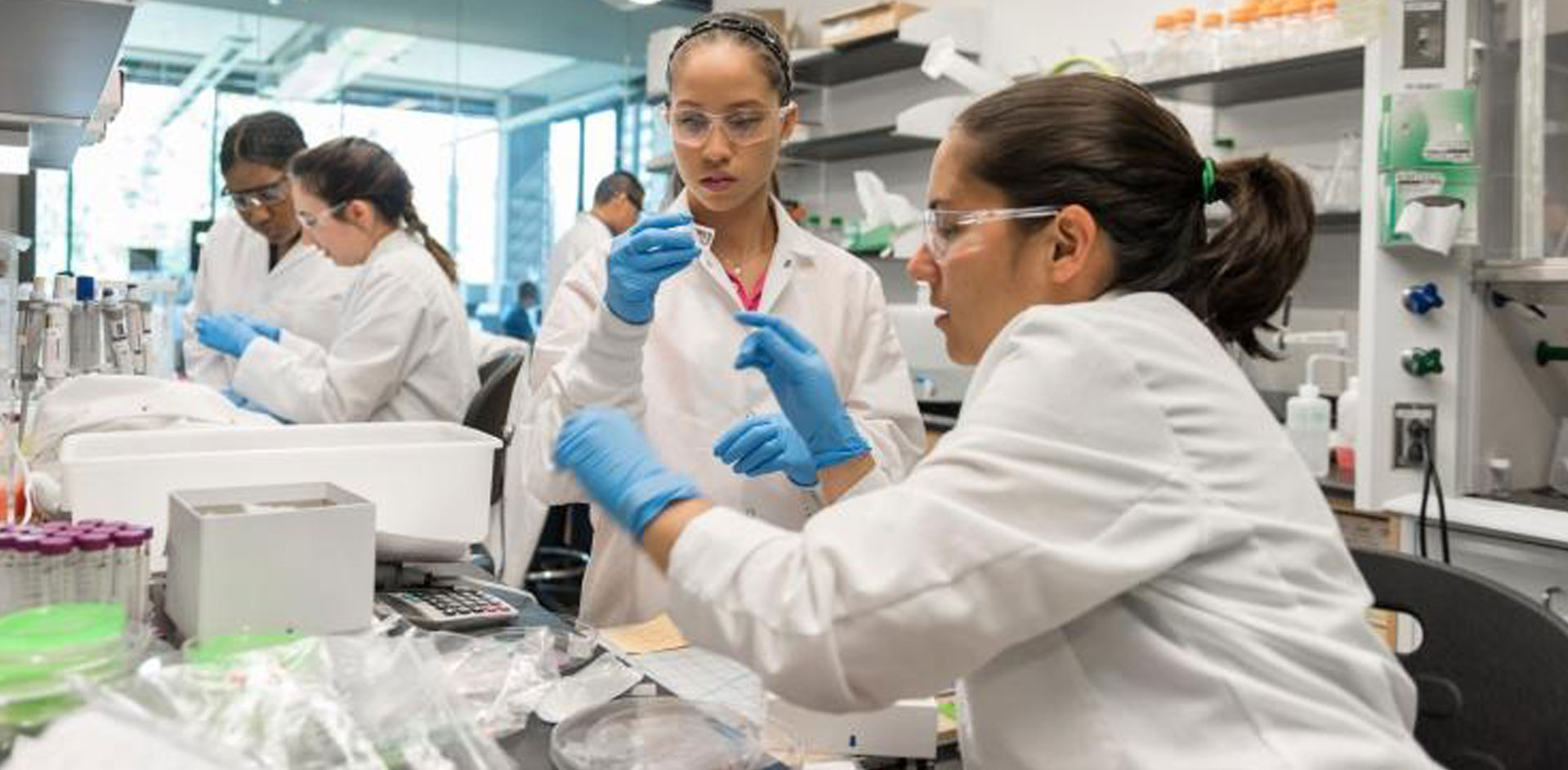Broadening Data Science Education for Future Biomanufacturing Workforce Workshop Report (Dec. 2023)
Biomanufacturing Infrastructure Workshop Whitepaper
Download the 2019 Roadmap Update (latest version)
Over 25 companies and 15 academic institutions collaborated together with government agencies to produce a national roadmap on cell therapy manufacturing. The National Cell Manufacturing Consortium (NCMC) is the first U.S. based national consortium focused on developing, maturing, and implementing technologies that can enable large-scale, cost-effective manufacturing of therapeutic cells. NCMC is established through the Advanced Manufacturing Technologies (AMTech) grant from the National Institute of Standards and Technologies (NIST).
This roadmap was developed through a public-private partnership under the direction of Greg Dane, Director of the Industry Fellows Program at Georgia Research Alliance; Krishnendu Roy, Robert A. Milton Chair of Biomedical Engineering at Georgia Institute of Technology; and the National Cell Manufacturing Consortium Executive Committee with direct input from industry, academia, clinical facilities, private foundations, and government agencies. Nexight Group supported the overall roadmapping process and prepared this roadmap; Sarah Lichtner, Ross Brindle, and Lindsay Pack are the primary contributors. The cell manufacturing industry experts who made vital contributions through workshop participation, working group support, and roadmap reviews are identified in Appendix B of this report.
Who Should Read this Roadmap? This roadmap will be of use to a variety of individuals within and beyond the cell manufacturing community. It is not written solely for pharmaceutical or biotechnology companies, but rather for a range of stakeholders within industry, academia, and government who are critical to advancing this industry. Achieving large-scale, reproducible production of high-quality therapeutic cells at low cost will require a convergence science approach that brings together clinicians, cell biologists, and immunologists with a wide variety of engineers and scientists—not only bioengineers and chemical engineers who have been classically involved in biomanufacturing, but also electrical and mechanical engineers, computer and data scientists, systems biologists, chemists, physicists, and manufacturing and industrial engineers. To realize large-scale cell manufacturing, industry and clinical Good Manufacturing Practice (GMP) centers must focus on the priority activities outlined in this roadmap to drive the development and implementation of advanced cell manufacturing technologies and techniques. Academic researchersmust support these efforts by conducting the R&D necessary to bring these life-changing tools and techniques to market. Sensors and automation, big data analytics and machine learning, process engineering and plant design, and systems integration and instrumentation must all be an integral part of the fundamental national strategy to achieve success in industrial-scale cell manufacturing. To inform the efforts of industry scientists and academic researchers, physicians, biologists, and clinical scientists must provide the supporting knowledge and design parameters necessary to realize the therapies and treatments that will allow them to improve the lives of millions of people.In the absence of regulatory buy-in, standardization, social buy-in, and insurance reimbursement, the promises of cell therapies and regenerative medicine will fail to reach their transformative potential. Government agencies, law makers, regulatory personnel, standards organizations, policy experts, the reimbursement industry, and private foundations must acknowledge the cell manufacturing industry’s areas of priority need, focusing resources in these areas and developing regulations and standards that can facilitate this industry’s accelerated growth.
The Georgia Institute of Technology (Georgia Tech) was funded by NSF to convene a mid-scale research engineering conference, “Planning the Infrastructural Needs to Meet National Research Demand and Support the United States’ Leadership in Biomanufacturing,” to gather input from multidisciplinary stakeholders on building mid-size research infrastructure that would create a national hub and tools and technology warehouse for the biomanufacturing and supply chain of emerging therapies and next-generation vaccines.CMaT hosted a series of Workshops in November 2020 and published a Whitepaper that summarizes the results of the discussion.

